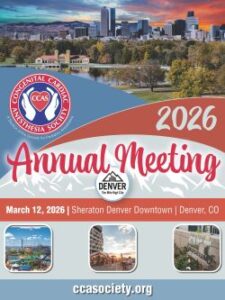Author: Nicholas Houska, DO - University of Colorado, Children’s Hospital Colorado
A 1-week-old, 3.6 kg neonate is admitted to the cardiac intensive care unit with decreased responsiveness, poor urine output and diminished femoral pulses. A transthoracic echocardiogram reveals coarctation of the aorta.
What is the MOST likely coexisting congenital heart defect in this patient?
EXPLANATION
Bicuspid aortic valve (BAV) is the most common congenital heart defect with a prevalence of 1-2%. Coarctation of the aorta (CoA) occurs in three out of every 10,000 live births but is more common when occurring in conjunction with other congenital heart defects. BAV and CoA have a male to female predominance of 2:1to 4:1. In addition, both are associated with Turner syndrome. While approximately 7% of patients with a BAV will also have a coarctation of the aorta, upwards of 85 % of patients with CoA will have concurrent bicuspid aortic valve. The frequent association of CoA and BAV together suggest an underlying generalized arteriopathy. This may place patients at risk for future complications and the need for further catheter and surgical based interventions. Bicuspid aortic valve is the most common cause of aortic valve stenosis and aortic valve replacement in patients under 60 years of age.
Coarctation of the aorta can lead to hypertension, which often persists even after complete repair. Approximately 10% of patients with aortic coarctation also have intracranial aneurysms, increasing the risk of cerebrovascular accidents. Other complications include congestive heart failure, endocarditis, and aortic dissection and rupture secondary to dilatation of the aorta. The rate of recurrence of aortic coarctation requiring reintervention after surgical repair is reported to be 5-15%. Due to the long-term complications of BAV and CoA, regular follow-up with a cardiologist is recommended.
REFERENCES
Sinning C, Zengin E, Kozlik-Feldmann R, et al. Bicuspid aortic valve and aortic coarctation in congenital heart disease-important aspects for treatment with focus on aortic vasculopathy. Cardiovasc Diagn Ther. 2018;8(6):780-788.
Warnes CA. Bicuspid aortic valve and coarctation: two villains part of a diffuse problem. Heart .2003;89(9):965-966.
Torok RD, Campbell MJ, Fleming GA, Hill KD. Coarctation of the aorta: Management from infancy to adulthood. World J Cardiol. 2015;7(11):765-775.
Bacha E, Hijazi ZM. (2023) Management of coarctation of the aorta. UpToDate. Retrieved July 4, 2023, from: https://www.uptodate.com/contents/management-of-coarctation-of-the-aorta
